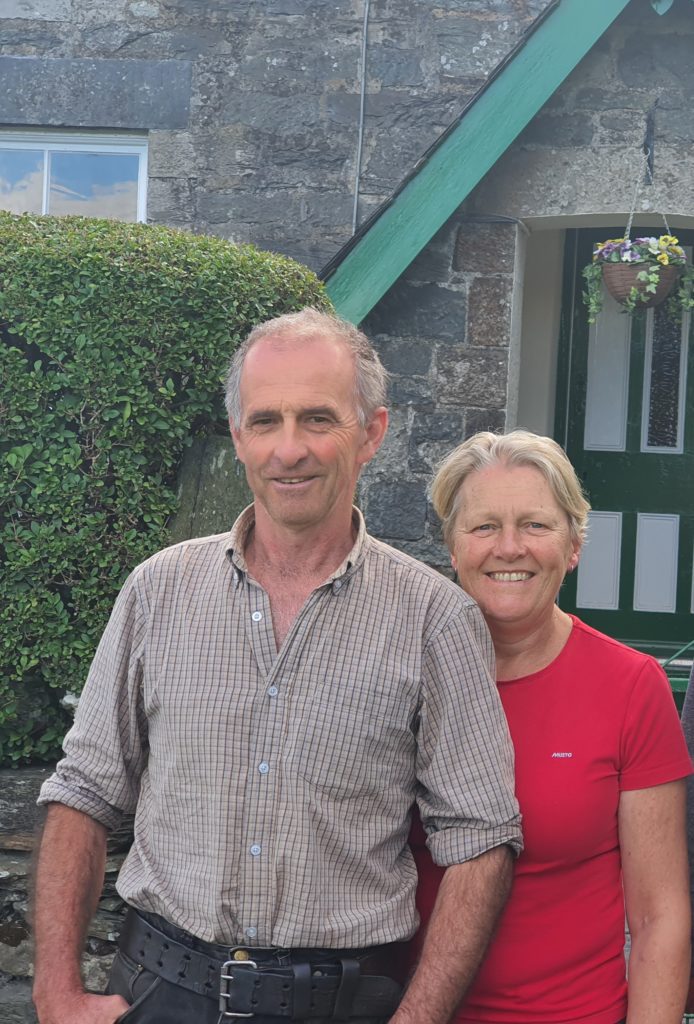Heddwyn and Buddug Morgan and their son Credig are used to making a living against the odds, as they frequently battle the weather conditions in the Penmachno valley. However, with farming in their blood, they treat each new set of challenges as they would treat bad weather; a minor irritation, but not something to impede day to day life.
Heddwyn and Credig have learned that whilst fads come and go in hill farming, the basic challenge remains constant through the generations.

The family is honest about the challenges on their 450 acre farm and the farming conditions. Heddwyn said: “It’s mainly rough ground. Poor land. It’s changed a lot since we came here because of the wetness of the place and the more frequent and intensive floods we get. We tried to reseed and improve it but it just goes back to poor grass so it’s not productive.
“Because we’ve got a lot of big boulders and stones in the fields you can’t put a plough in there so we’re very limited in the amount of fields we’ve got, with not much land available for harvesting crops to keep for stock over the winter.”
His solution is to cultivate the land in the traditional way in which it has been farmed for centuries. Putting the hardy animals first and sometimes braving biting winds and driving rain to make sure they are well looked after.
“It’s quite traditional the way we do things. Low input; that is what makes it sustainable. But it’s very labour intensive, not many people do it.” explains Heddwyn.
In a world where intensive farming was once labelled ‘efficient’ and businesslike, the wheel has turned full circle and the results of a traditional approach are lauded as sustainable and complementing the environment.
Beyond the farm gates, the community is constantly changing. When the family first arrived in Cwm Penmachno from Bala in 1987 the community included the remnants of the quarry workers, mostly tenant farmers and forestry workers but almost all Welsh speaking.
As farms merged, swamped under tree plantations or sold on as second homes, the Zeitgeist has changed. Credig said:”If you get a policy that’s going to encourage bigger and bigger farms it’s inevitable you have less people working there, the community and our culture and way of life are going to disappear more and more.”
But Buddug feels that education has an important part to play and it presents an opportunity. For her, education and a tolerant attitude means more Welsh speakers rather than fewer.
She said:”Education has made a difference in schools in terms of the Welsh language. There are a few people in this village whose parents don’t speak Welsh but the children do. If you catch them at a young age and they’re in school where they have to have the Welsh, it really helps.”
But as the factors external to Pen y Bont farm shift and wane, Heddwyn, Buddug and Credig Morgan will continue to farm the best way they know how. In the face of afforestation, rural depopulation and hacking crops from rocky land, they will strive to carry on. Cultivating the land and tending to their animals as families have done for generations – against the odds.
